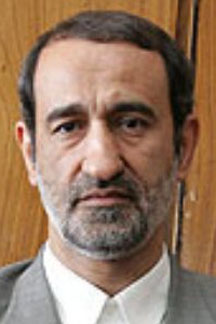TEHRAN, (Reuters) – Iran warned Gulf Arab neighbours yesterday they would suffer consequences if they raised oil output to replace Iranian crude facing an international ban.
In signs of Tehran’s deepening isolation over its refusal to halt nuclear activity that could yield atomic bombs, China’s premier was in Saudi Arabia probing for greater access to its huge oil and gas reserves and Britain voiced confidence a once hesitant European Union would soon ban oil imports from Iran.

Major importers of Iranian oil were long loath to embargo the lifeblood of Iran’s economy because of fears this would send oil prices rocketing at a time – amidst debt and deficit crises and high unemployment – when they could least afford it.
But strong momentum for oil sanctions has been created by a U.N. watchdog report saying Iran appeared to have worked on designing an atom bomb.
A new U.S. law signed by President Barack Obama on New Year’s Eve would freeze out of the U.S. financial system any institution dealing with Iran’s central bank – which processes its oil revenues.
If fully applied, the law would make it impossible for most countries to buy Iranian oil. Washington is offering waivers to countries to let them keep buying Iranian oil for now, but demanding they gradually cut their imports back.
Leaders from some of the Asian countries that buy the most Iranian oil have begun touring the Middle East to secure alternative supply lines from Arab states. European buyers suggest they will also lean more heavily on Arab oil producers should an EU ban come into effect.
Feeling increasingly encircled, Iran’s hardline Islamic clerical elite has lashed back by threatening to block the main Middle East oil shipping route. Since the New Year, Tehran also began to enrich uranium in an underground bunker and sentenced an Iranian-American citizen to death on espionage charges.
Tensions in the Gulf have caused occasional spikes in oil prices in recent weeks. The sanctions are also having a real impact on Iran’s domestic economy, causing prices of imported staples to soar and the rial currency to tumble.
Iran holds a parliamentary election in March, its first since a presidential vote in 2009 led to eight months of street protests. Those demonstrations were put down by force, but since then the “Arab Spring” has shown the vulnerability of states in the region to public anger fueled by economic hardship.
IRAN WARNS
GULF ARABS
Iranian OPEC Governor Mohammad Ali Khatibi said Tehran would regard as an unfriendly act any move by neighbouring Gulf Arab oil exporters to make up for Iranian crude.
“If (they) give the green light to replacing Iran’s oil these countries would be the main culprits for whatever happens in the region – including the Strait of Hormuz,” Khatibi told the Sharq daily newspaper, referring to the narrow sea channel through which a third of the world’s oil tanker traffic passes.
“Our Arab neighbour countries should not cooperate with these (U.S. and European) adventurers… These measures will not be perceived as friendly,” he said.
Saudi Oil Minister Ali al-Naimi said on Saturday the world’s No. 1 oil exporter – the only one in OPEC with significant unused capacity – was ready and able to meet any increase in demand. He made no direct reference to sanctions on Iran.
Iran’s navy commander Habibollah Sayyari said Tehran could exert control over the Strait of Hormuz. The United States, whose warships patrol the region, says it will not tolerate any attempt to disrupt shipping through the strait.
